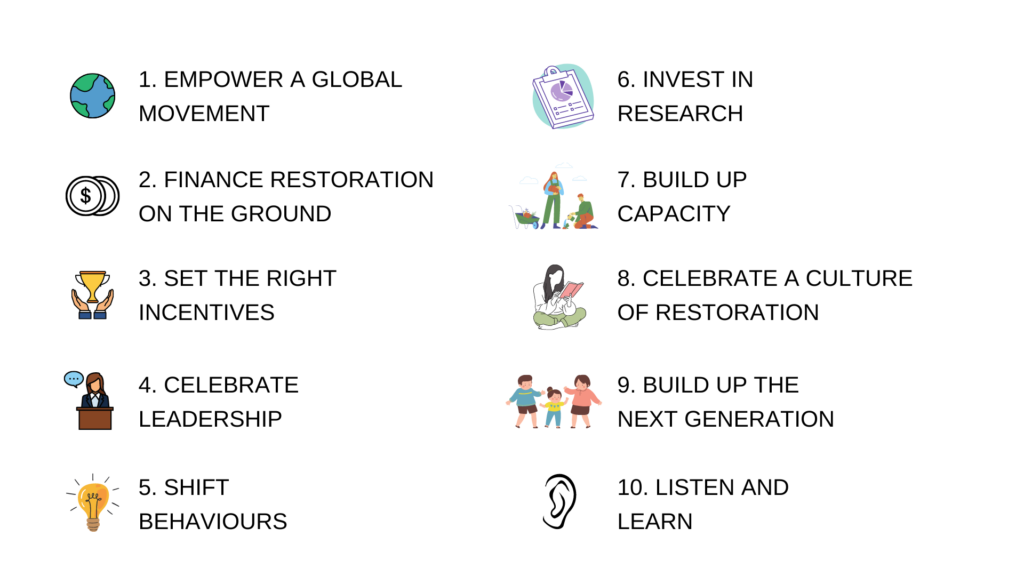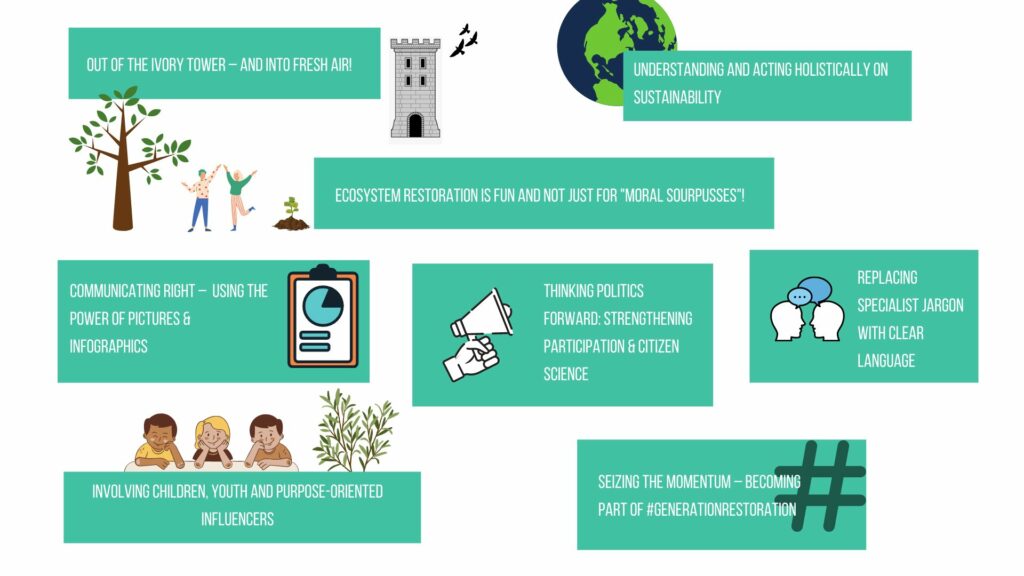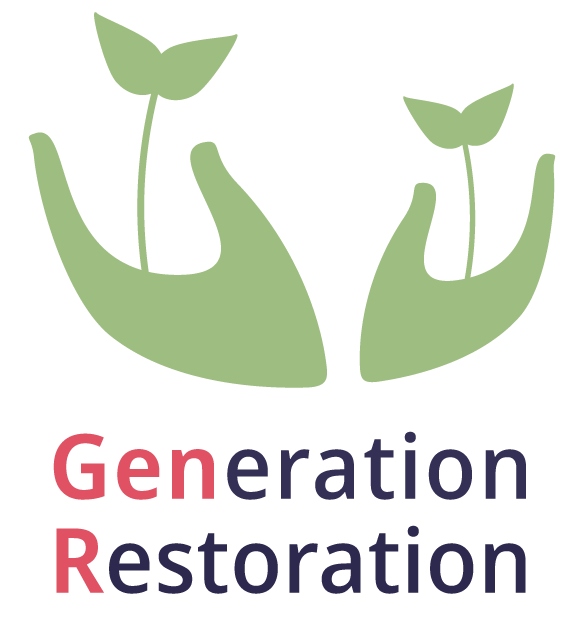
UN Decade 2021-2030: "Reconstruction" for Flourishing Landscapes
What influence does the UN Decade of Ecosystem Restoration have on the implementation of biodiversity conservation goals? GenR founder, Tina Teucher, gave a lecture on this topic in Linz, Austria, in 2021, which is now available online as a book contribution.
The United Nations is focussing on restoring ecosystems in the current decade. The topic also took centre stage at the 2021 World Climate Conference in Glasgow. In Tina Teucher’s article in the conference book “Biodiversity Law”, she presents the background to the UN Decade of Ecosystem Restoration, its strategy, its potential and its significance for achieving biodiversity conservation goals.
Contents of the Article
1. The Problem of Destruction
2. The UN Decade on Ecosystem Restoration
a) The Strategic Orientation of the New UN Decade
b) Goal: Peace with Nature
3. The Potential of “Ecosystem Restoration”
a) What Can Ecosystem Restoration Achieve?
b) What Exactly is to Be Restored?
c) Thinking Sustainability Holistically
4. International Goals with Common Ground
a) Utilising Synergy Effects with Existing Goals and Projects
b) What is the EU doing in the Area of Ecosystem Restoration?
5. Existing Approaches in the Field of Ecosystem Restoration
a) Regenerative Land Use Concepts
b) Opportunities for Companies
c) Participatory Approaches
6. What can this Decade do Differently?
7. Bibliography
Why do we Need a UN Decade for the Restoration of Nature?
“Less than a quarter of the Earth’s land surface is free from human influence. This has devastating consequences and is causing massive damage to ecosystems: 420 million hectares of forest have been converted to other forms of utilisation since 1990, and around 87% of the world’s inland wetlands have disappeared completely since 1700. Furthermore, around a third of the world’s agricultural land has been damaged – in the EU alone, around 12 million hectares of farmland have been severely eroded. The number of weather-related natural disasters has risen since the 1970s, more than tripling in Germany. And due to the destruction of nature, we are currently in the 6th mass extinction: The World Biodiversity Council estimates that one million animal species are under threat. The degradation of terrestrial and marine ecosystems leads to the mass extinction of species, reduces resilience to climate change, costs more than 10% of annual global GDP (approximately $6.3 trillion) through the loss of species and ecosystem services, negatively impacts the well-being of over 3.2 billion people and increases the risk of catastrophic collapse.” (p. 147, translated from German)
The Demands of the UN Decade on Ecosystem Restoration
“Led by the United Nations Environment Programme (UNEP) and the Food and Agriculture Organisation of the United Nations (FAO), the UN Decade on Ecosystem Restoration is building a powerful global movement to steer the world towards a sustainable future. This includes building a political movement for the restoration of ecosystems as well as the implementation of thousands of initiatives on the ground.” (p. 150, translated from German)

Fig.: The demands of the UN Decade. Own illustration based on United Nations Decade on Ecosystem Restoration 2021-2030 © Tina Teucher
What can this UN Decade do differently from the last one?

Fig.: “What can this decade do differently?” © Tina Teucher
Source / Bibliographical Reference
Teucher, T. (2023): „Wiederaufbau“ für blühende Landschaften. Die Bedeutung der UN-Dekade „Ecosystem Restoration“ für die Umsetzung von Biodiversitätsschutzzielen. In: Wagner, E. M., Schumacher, J. (2023): Biodiversitätsrecht. Bestandsaufnahme nach 40 Jahren Bonner und Berner Konvention sowie Vogelschutz- und FFH-Richtlinie. (Tagungsband zur Netzwerktagung Biodiversität in Linz am 27.-28.10.2021.), Manz Verlag, p. 147-164.
https://shop.manz.at/shop/products/9783214253424
Download the Full Article (in German)
The PDF of the article is available on the website of the non-profit organisation Generation Restoration e.V.:
Please support the organisation with a donation to Download:
Generation Restoration e.V.
IBAN: DE72 8709 6124 0197 2043 20
BIC: GENODEF1MIW
Bank: Volksbank Mittweida
Now: Participate!
Do you want to learn more, get involved, or simply keep informed?
Sign up to receive updates on Refugees & Restoration!
Copyright © 2024 Generation Restoration – Let’s restore 🙂

